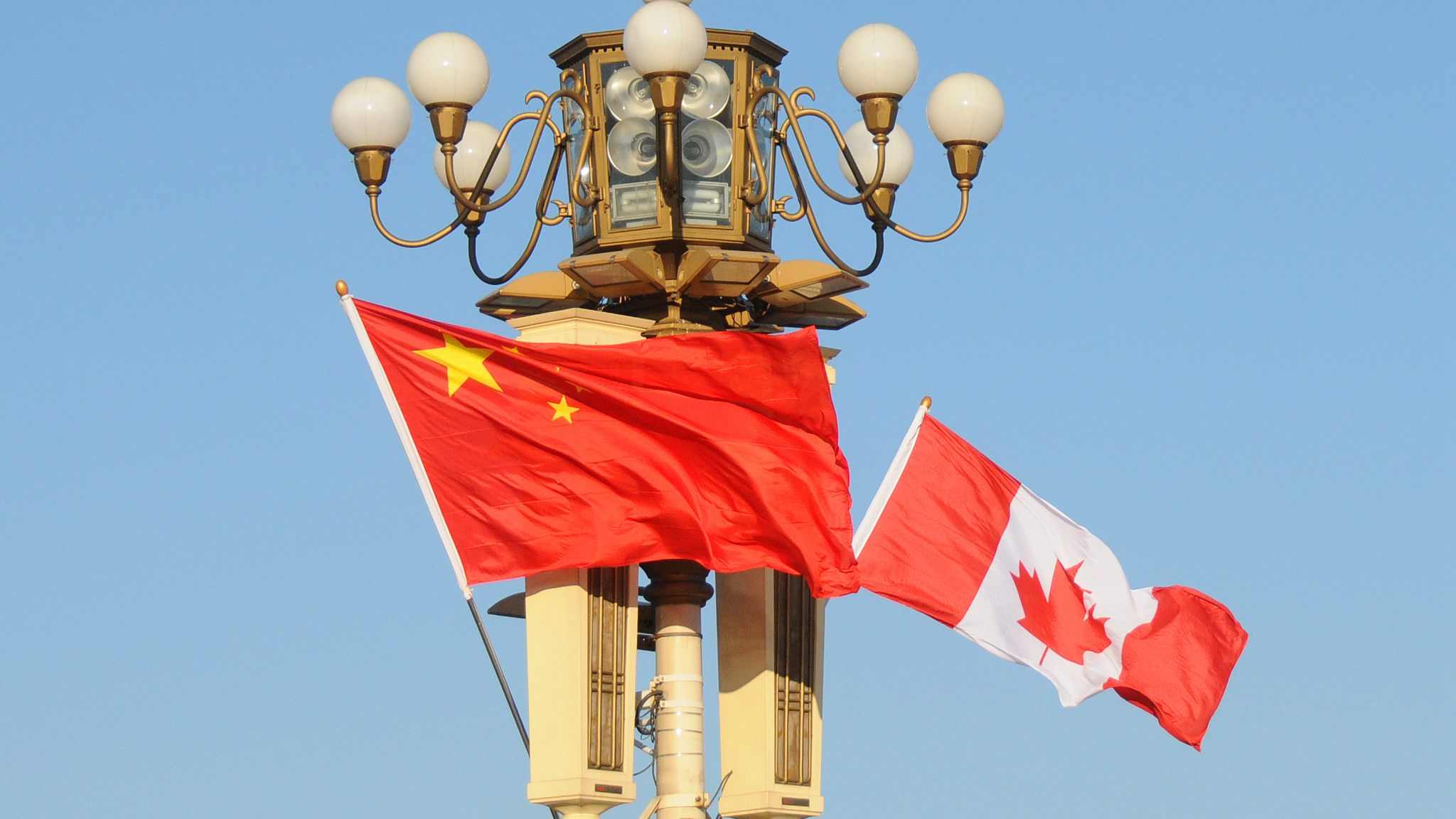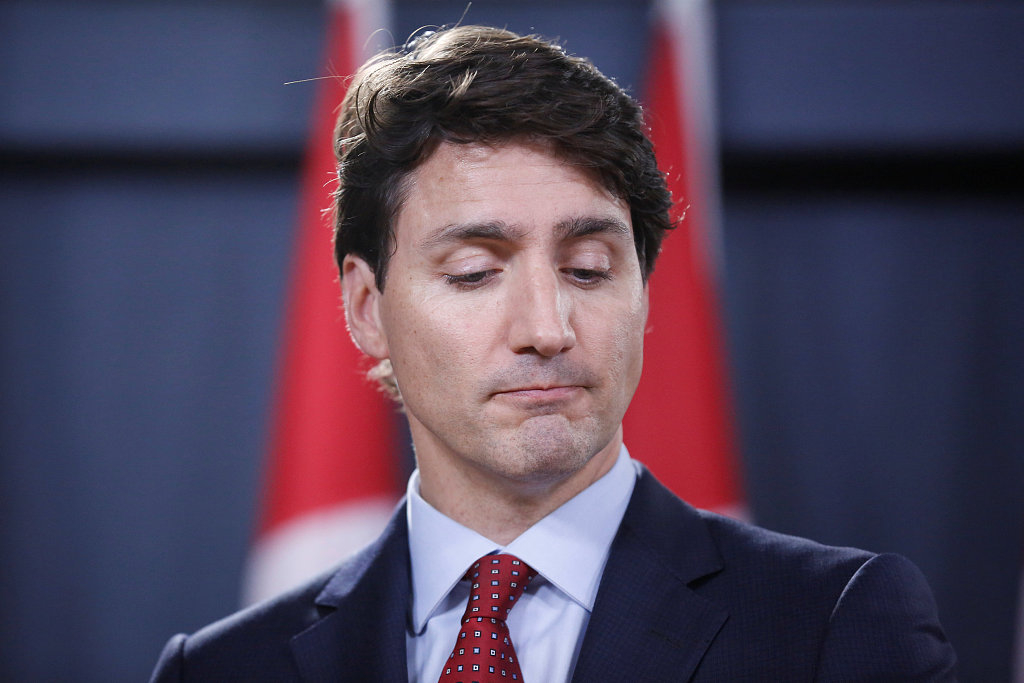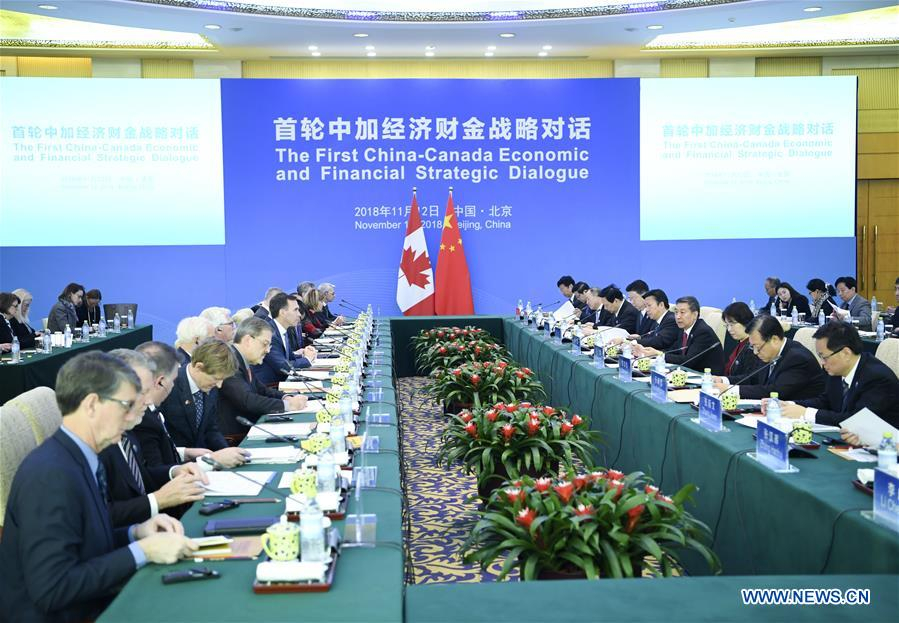

Editor's note: Ken Moak taught economic theory, public policy and globalization at the university level for 33 years. He co-authored a book titled "China's Economic Rise and Its Global Impact" in 2015. The article reflects the author's opinion, and not necessarily the views of CGTN.
Since Canada arrested Huawei Chief Financial Officer, Meng Wanzhou, at the behest of the U.S. and subsequent China's detainment of Michael Korvig and Michael Spavor, their relationship has been "on the rocks" and could sink lower. Contributing to the increasingly faltering relationship is tit-for-tat economic retaliations, China not buying Canadian canola and Canada monitoring Chinese food imports and suspecting spying.
In addition, Prime Minister Justin Trudeau's political opponents are demanding "tough" measures against China for they referred to as Chinese "arbitrary detainment" of Canadians and "unfair" trade practices.
The main opposition Conservative Party leader Andrew Scheer, perhaps in an attempt to politicize China-Canada ties is accusing Prime Minister Justin Trudeau of being "soft" on China.
Being an election year, the Trudeau government might be forced to respond by ordering the Canadian Food Inspection Agency to monitor imports from China more closely and investigating an accomplished and award-winning Chinese-Canadian health science researcher, Dr. Qiu Xiangguo, for "possible breaches of policy" in July.
Dr. Qiu was one of the first scientists to have developed a drug treating Ebola for which she won Canada's Governor General's Innovation Award with another researcher.
The investigation of Dr. Qiu is worrisome because it might lead to allegations of possible Chinese spying and sparking a debate on China-Canada relations. In the absence of sound or accurate information and evidence, that debate would unlikely be objective or rational, thereby sinking the relations even lower.
Neither country's interests would be properly served should that materializes, prolonging and increasing both sides' losses. In this sense, there are reasons why the relationship should be put back on track.

Canada's Prime Minister Justin Trudeau at a news conference in Ottawa, Ontario, Canada, May 31, 2018. /VCG Photo
Regardless of which side has the "moral high ground", the damages caused by the Meng case have been done and the hardened position taken by Canada would not bring the two Michaels home. China demanding Canada to release Ms. Meng keeps falling on "deaf ears" in Ottawa.
Finding ways to address or compromise on addressing the differences is thus the only way going forward, and it is both countries' national interests that they can resume the good relationship before the arrest of Ms. Meng.
While the U.S.-Canada relationship had its "ups and downs", it, for the most part, had served Canada well, China buying large quantities of its resources and attracting sizable amounts of investment, albeit that not everyone appreciates.
Chinese buying Canadian real estate triggered a construction boom but they were also accused on making housing unaffordable. However, because of the industry's large multiplier effect, it could be argued that foreign buyers were partly responsible for economic growth. The new homeowners increased the demand for appliances, other household goods and other consumer products.
Chinese international students and tourists contributed billions of dollars to the Canadian economy. Paying three or four times the tuition fees charged local students, China actually subsidized many university programs. Being "big spenders", Chinese tourists supported many Canadian businesses.
Chinese students and tourists thus increase employment directly and indirectly across all sectors of the economy. For example, faculty at Canadian universities and hospitality workers would be able to buy homes, groceries and other goods and services.
Furthermore, accessing the Chinese market and those of countries participating in China's Belt and Road Initiative could expand Canada's exports and wean itself from being overly dependent on the U.S. economy.

Chinese State Councilor Wang Yong, Canadian Finance Minister William Morneau and Canadian Minister of International Trade Diversification James Carr co-host the first round of the China-Canada Economic and Financial Strategic Dialogue in Beijing, capital of China, November 12, 2018. /Xinhua Photo
Resetting the China-Canada ties also benefits China. Canada could offer China resources and food securities given the former's massive landmass and abundance of resources. Having a "friendly" voice in the G7 club could promote China's geopolitical interest, particularly when it is in the middle of trade, technology and geopolitical wars with the U.S.
The potential benefits of sound China-Canada relations are therefore huge. Equally important is that the two countries have the conditions to improve relations, sharing similar views of globalization and multilateralism although they have a different ideology.
Both countries understand the benefits that international trade and investment bring. For example, taking advantage of each country/region's comparative advantage would generate economies of scale, improving competitiveness and economic growth, among others.
China and Canada have a history of friendship and cooperative stances from which both countries have benefited. Canada helped China's reform initiatives, sponsoring a management training center for cadres at Chengdu in the 1980s, assisting it in revamping the judiciary system, and providing aid in many their areas.
China, in turn, bought huge quantities of Canadian resources at the aftermath of the 2008 financial crisis, preventing Canada from falling into the "Great Recession".
Given the faltering relations are already causing economic stress in Canada and further deterioration would only make matters worse, it should not be an insurmountable problem for China and Canada to set aside their difference and put the relationship back on track.
(If you want to contribute and have specific expertise, please contact us at opinions@cgtn.com.)

Copyright © 2018 CGTN. Beijing ICP prepared NO.16065310-3
Copyright © 2018 CGTN. Beijing ICP prepared NO.16065310-3